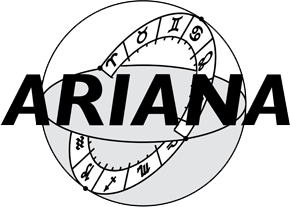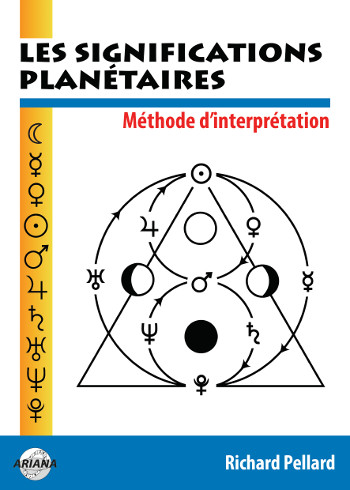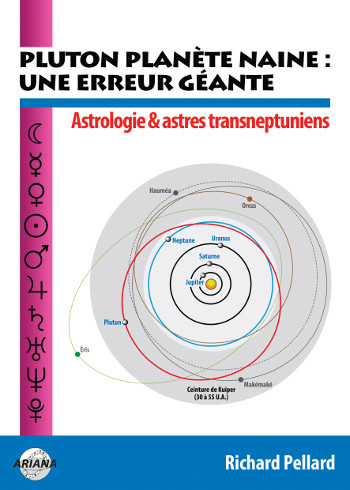Your Planets
Portraits of the Planets
Aspects between Planets
The planetary ages
The planetary families
Planets in Signs
The Planets in comics


The interpretation examples that we are suggesting are very far from being exhaustive : they only show and outline a general frame describing the issues of the aspect. They should therefore not be taken literally. Each being brings indeed its own responses, more or less original, to the questions raised by an aspect. There is no magic formula. Through using the R.E.T. and the Theory of Ages and combining logic, observation and imagination, you will be able to develop a thousand other possible meanings, a thousand other variations on the same theme.
“tE-eT” issue (transcendance of Existence & existence of Transcendance). How to blend switching from the duo-duel to the multiple (Saturn ‘tE’) with switching from the multiple to the duo-duel (Neptune ‘eT’)? How to operate together an experimental scepticism and unpredictable moods? How to ponder the complexities of experience while experiencing strange sensations? This aspect excludes levels ‘R’ (communicative sociability) and ‘r’ (decisive willpower).
You are a subtle, rigorous and penetrating analyst at the same time as an inspired and intuitive clairvoyant. You draw from your life and your experiences multiple questions and hypotheses to which your deep and quasi-psychic sensitivity responds with nuanced, undulating truths, all in finesse and chiaroscuro. You question the mystery and the unknown of tangible beings, things and situations, and the mystery, the unknown are revealed in halftones, in a living and vibrant complexity. Your scholarly abstractions, inseparable from your deep feelings, give birth to quivering realities from which you immediately abstract to once again question the invisible, the tenuous, the unspoken. Austere and generous, solitary and warm, cautious and whimsical, secretive with a tumultuous sensibility, you strive to rationalize your moods and give soul to reason. You express yourself through riddles and paradoxes, living in an elsewhere that you tirelessly seek to understand.
Balanced dissonance : you switch alternately from an experimental scepticism (Saturn) to unpredictable nebulous moods (Neptune), without being able to bring yourself to choose. Depending on whether one or the other function dominates in your experience, you can adopt the following attitudes :
If and when Saturn dominates : you are locked in an extremely critical skepticism vis-à-vis all the disconcerting manifestations of the unknown or the unconscious. The cold distance that you maintain with regard to your life and your experiences prevents you from taking into account the quiverings of your soul, from being receptive to the deep movements of your sensitivity. Your desiccating reason is in search of a hypothetical absolute of which you refuse to take into account the slightest emerging sign. You isolate yourself in a painful loneliness that forbids you any sharing, any collective communion, and you dive so well into the depths of beings, things and situations that you forget all human warmth, all expression of your tumultuous affectivity. You forbid your intuition to reveal anything of your inner explorations and investigations.
If and when Neptune dominates : you live in a troubled world populated by chimeras, confused aspirations, convoluted states of mind and deep emotional turbulence that you are careful not to put to the test of facts and their experimental criticism. No constructive skepticism can protect you against the spells of your overly prolix imagination, and the voice of deep reason cannot distract you from the song of your inner or outer sirens. You take refuge in an elsewhere which you madly hope will allow you to escape the rigors and difficulties of your present situation. You invent mysteries for yourself, for lack of being able or wanting to investigate the real secrets and enigmas of things, beings and situations. Your irrational reliance on the virtues of providence or your guesswork makes you reckless and short-sighted.
If you learned to control this dissonance, you know that there is a time for experimental curiosity and a time for listening to your intuitive feelings, and know how to flawlessly alternate these two functions.
If you managed to sublimate this dissonance, you have deliberately sacrificed any disenchanted pursuit of the hidden meaning of your experiences for the sake of emotionally connecting to your inner self ; or you have abdicated any wild mystical dreams in favour of a laborious experimental research.
▶ Introduction aux significations planétaires
▶ The Saturnian: Psychological profile
▶ The saturnian function ‘tE’ (transcendence of Existence)
▶ Saturnian stage (from 12 to 30 years old): the age of questioning
▶ Mars-Jupiter-Saturn: extensive Existence
▶ Mercury-Saturn-Pluto: intensive transcendence
▶ The Neptunian: Psychological profile
▶ Uranian stage (from 30 to 84 years old): the age of individualization
▶ Neptunian stage (from 84 to 164 years old): the age of depersonalization
▶ Uranus-Neptune-Pluto: extensive Transcendence
▶ Venus-Mars-Neptune: intensive existence
▶ Les couples planétaires

Les significations planétaires
par
620 pages. Illustrations en couleur.
La décision de ne traiter dans ce livre que des significations planétaires ne repose pas sur une sous-estimation du rôle des Signes du zodiaque et des Maisons. Le traditionnel trio Planètes-Zodiaque-Maisons est en effet l’expression d’une structure qui classe ces trois plans selon leur ordre de préséance et dans ce triptyque hiérarchisé, les Planètes occupent le premier rang.
La première partie de ce livre rassemble donc, sous une forme abondamment illustrée de schémas pédagogiques et tableaux explicatifs, une édition originale revue, augmentée et actualisée des textes consacrés aux significations planétaires telles qu’elles ont été définies par l’astrologie conditionaliste et une présentation détaillée des méthodes de hiérarchisation planétaire et d’interprétation accompagnées de nombreux exemples concrets illustrés par des Thèmes de célébrités.
La deuxième partie est consacrée, d’une part à une présentation critique des fondements traditionnels des significations planétaires, d’autre part à une présentation des rapports entre signaux et symboles, astrologie et psychologie. Enfin, la troisième partie présente brièvement les racines astrométriques des significations planétaires… et propose une voie de sortie de l’astrologie pour accéder à une plus vaste dimension noologique et spirituelle qui la prolonge et la contient.
Téléchargez-le dès maintenant dans notre boutique

Pluton planète naine : une erreur géante
par
117 pages. Illustrations en couleur.
Pluton ne fait plus partie des planètes majeures de notre système solaire : telle est la décision prise par une infime minorité d’astronomes lors de l’Assemblée Générale de l’Union Astronomique Internationale qui s’est tenue à Prague en août 2006. Elle est reléguée au rang de “planète naine”, au même titre que les nombreux astres découverts au-delà de son orbite.
Ce livre récapitule et analyse en détail le pourquoi et le comment de cette incroyable et irrationnelle décision contestée par de très nombreux astronomes de premier plan. Quelles sont les effets de cette “nanification” de Pluton sur son statut astrologique ? Faut-il remettre en question son influence et ses significations astro-psychologiques qui semblaient avérées depuis sa découverte en 1930 ? Les “plutoniens” ont-ils cessé d’exister depuis cette décision charlatanesque ? Ce livre pose également le problème des astres transplutoniens nouvellement découverts. Quel statut astrologique et quelles influences et significations précises leur accorder ?
Enfin, cet ouvrage propose une vision unitaire du système solaire qui démontre, chiffes et arguments rationnels à l’appui, que Pluton en est toujours un élément essentiel, ce qui est loin d’être le cas pour les autres astres au-delà de son orbite. Après avoir lu ce livre, vous saurez quoi répondre à ceux qui pensent avoir trouvé, avec l’exclusion de Pluton du cortège planétaire traditionnel, un nouvel argument contre l’astrologie !
Téléchargez-le dès maintenant dans notre boutique